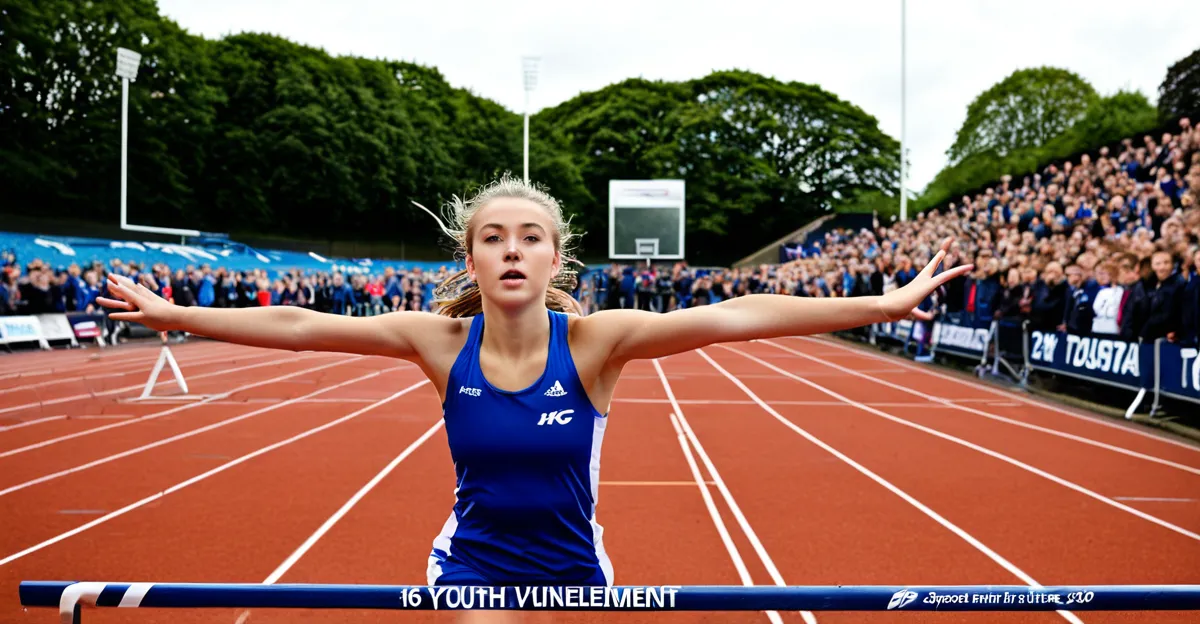The Current Landscape of Youth Sports Participation in the UK
The landscape of youth sports participation in the UK is dynamic, influenced by multiple factors that reflect broader social trends. Currently, the UK is witnessing a diverse range of engagement levels across various demographics. According to UK athletics statistics, participation rates have remained relatively stable, with some fluctuations due to socio-economic factors and accessibility to sports facilities.
Demographically, youth sports are predominantly participated in by school-aged children, with a significant number drawn from urban areas. However, rural areas have shown challenges in maintaining the same levels of engagement due to fewer resources and sporting venues. Initiatives aimed at increasing participation have seen varied success, often requiring targeted strategies to address unique community needs.
Have you seen this : What are the most effective training methods for UK athletes?
Key trends impacting youth engagement in athletics include a shift towards inclusive sports programs that cater to different abilities and interests, promoting a broader scope of participation. Additionally, there is a growing emphasis on mental health and well-being, encouraging a balanced approach to youth sports that values psychological as well as physical development. Technological advancements, such as digital tracking of fitness and performance, also play a role in attracting youth, setting a precedent for future innovation in the field.
Impact of Youth Participation on Athletic Development
Engagement in youth sports plays a pivotal role in the identification and nurturing of potential athletic talent. From a young age, participation provides a foundation for developing essential skills, such as teamwork, discipline, and a competitive spirit. These attributes are crucial for personal growth and enhancing performance improvements on the field.
Have you seen this : How Does Rugby Influence British Culture?
Youth training programs serve as an indispensable resource in shaping future athletes. A notable example is the UK’s Junior Athlete Education Programme, which combines academic learning with athletic development, ensuring a balanced progression in young sports enthusiasts. Such initiatives highlight the effectiveness of structured training in honing the talents of aspiring athletes.
Coaches often emphasize the benefits of early involvement in sports, reflecting on improvements in young athletes’ coordination, stamina, and strategic understanding. According to UK athletics statistics, early participation correlates with higher chances of excelling in the sport at advanced levels. As youths progress through these programs, they develop a robust foundation necessary for potential careers in professional sports, underscoring the value of comprehensive youth sports initiatives.
Youth Sports and Cultural Shift in Athletics
The impact of youth sports on community attitudes towards athletics is substantial, creating a ripple effect that extends beyond individual participation. As young athletes engage in sports, they help foster a positive sports culture, promoting inclusivity and camaraderie. This engagement often leads to enhanced community values, as it encourages a collective support for local teams and events, strengthening communal bonds.
Influence of young athletes extends into how sports are perceived by society. Their enthusiasm and dedication often inspire peers and community members to view athletics as not just competitive, but also a means of personal and communal development. Youth-driven initiatives, such as local sports festivals or charity matches, exemplify their ability to mobilize and engage broader societal networks, demonstrating the societal benefits of youth involvement in athletics.
Furthermore, youth-led initiatives play a pivotal role in societal engagement. These projects often emphasize inclusivity and accessibility, advocating for diverse participation across various demographics. They serve as catalysts for change, encouraging a culture of active living and community integration through sports. The effects of such initiatives are profound, often resulting in increased participation rates and a heightened sense of community spirit.
Long-term Benefits of Youth Participation in Sports
Youth participation in sports offers numerous long-term health benefits, influencing both physical and mental well-being. Engaging in regular physical activities from a young age fosters the development of healthy habits that are likely to continue into adulthood. This consistent participation contributes significantly to reducing the risk of chronic diseases, enhancing cardiovascular health, and promoting overall physical fitness.
The societal implications of youth sports engagement are also profound. By nurturing teamwork, discipline, and leadership skills, sports instill values that translate into various areas of life, including education and employment. This positive impact extends to fostering community connections and reducing anti-social behavior, thereby strengthening societal cohesion.
Moreover, encouraging participation from an early age helps in developing lifelong athletic habits. This foundation not only enhances personal health but also builds a supportive community environment centered around active living. Sustainability in such practices is achievable through community programs that motivate continued involvement in sporting activities, ensuring that the benefits of youth sports participation resonate throughout an individual’s life.
Future Trends in Youth Sports Engagement
The future of youth sports engagement in the UK is set to be dynamic, with emerging trends significantly influencing participation. One of the notable trends is the increasing integration of technology to enhance the sports experience for young athletes. Innovations such as virtual reality training and wearable fitness trackers are providing new ways to train, monitor performance, and encourage participation through digital engagement. These advancements are making sports more accessible and appealing, catering to the tech-savvy generation.
As we look to the next decade, youth sports innovation is expected to introduce more personalized and interactive experiences. Clubs and organizations are exploring methods to use data analytics to tailor training programs specific to individual needs, thereby improving outcomes and keeping young athletes motivated. This shift towards customized engagements not only maximizes individual potential but also enhances overall enthusiasm for sports.
Predictions for the evolution of youth athletics include a stronger emphasis on inclusive sports. The development of programs that accommodate various skill levels and interests aims to break down barriers and widen participation. By promoting inclusivity, the UK is nurturing a generation that values diversity within athletics, ensuring that sports remains a key pillar of youth culture.
Furthermore, trends in digital engagement suggest that youths are more likely to be drawn to sports experiences that incorporate interactive social elements, both in-person and online. Platforms that support connectivity and community building among young athletes will likely become integral, contributing to sustained participation and fostering a supportive network for emerging athletes. The strategic implementation of these trends promises not only to sustain but also to enrich the landscape of youth sports in the UK.





